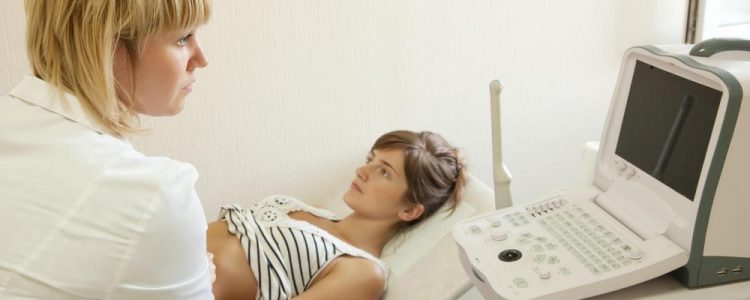
Crisis pregnancy centers (CPCs) are at the frontlines of the fight against abortion. They are often situated close to Planned Parenthoods, and provide many of the same services, sans abortions, at no charge. These clinics are perhaps the most effective strategy toward saving unborn lives, and are therefore often demonized in the mainstream media. Here are four common myths about CPCs and why these myths are false:
1. They lie to women
CPCs have been targeted for engaging in what pro-choice opponents will say is “false advertising.” An article in The Guardian claimed that one clinics advertisements made it look like they provided abortions, saying, “[the ad] emphasizes a woman’s choice, provides detailed information about the abortion pill and recommends that women call insurance providers to pay for their procedures. The clinic also says it provides “post abortive counseling”. But this ad was not deceptive because most CPCs actually provide much more information about all the options available during an unplanned pregnancy than the typical Planned Parenthood. While they don’t perform abortions or give specific recommendations to women on how to procure an abortion, they provide women with accurate knowledge of the risks of abortion that abortion clinics won’t talk about because they have a product to sell.
Former Planned Parenthood workers have testified that they would deliberately downplay or lie about the dangers involved in surgical and chemical abortions. Policy director at the pro-abortion Kaiser Family Foundation Alina Salganicoff even claimed that abortion carried no risks. She said, “Abortion has been legal in the United States since 1973, and we know that it’s very safe, and very, very few women have significant complications related to abortion. It’s certainly within [doctors’] rights to have objections to abortions, but to say that is unsafe and there are risks, when research finds that there are none, really raises a lot of questions.”
That this claim is undeniably false has been demonstrated multiple times in the past month alone. On May 27, 911 was called to the Aurora, IL Planned Parenthood for a woman who was unresponsive after an abortion, and you can read here about three families who lost loved ones to botched abortions
2. They only support women through the birth of their baby
In addition to providing medical help throughout the pregnancy, CPCs often offer parenting help until the child is 3, 5, or even 18 years old. Though it varies by clinic, almost all CPCs can connect women to services to help them with food, housing, baby clothes, child care, or navigating government services if they don’t provide them in house. When I clicked on random CPCs in Illinois, I found that most offer a wide range of support, from prenatal care to picking out a daycare.
3. They offer less services than Planned Parenthood
The “parenthood” part of the Planned Parenthood name logo is deceptive because they do very little to promote parenthood at all. Planned Parenthood’s services mainly revolve around sexuality. In Illinois, the Planned Parenthood clinics offer about nine services:
- abortion
- birth control
- HIV testing
- Men’s health care
- LGBTQ+ services (hormone replacement therapy)
- morning after pill
- pregnancy testing/services
- STD testing/ treatment
- women’s health care
Each of these services comes with a steep price tag, which they are very clear should be paid in full at the time of the appointment. In contrast, CPC’s only goal is to serve women on their path to parenthood or adoption completely free of charge. Though it varies by location, they tend to offer lab quality pregnancy tests, ultrasounds, STD testing and treatment, options counseling, post-abortive counseling, adoption referrals, parenting classes, referral to services that will support mom and baby until the child is 18. Additionally, Planned Parenthood only offers urine pregnancy tests, while CPCs usually offer a more accurate blood test. To see a few CPCs in Illinois that offer a wide variety of services go here, here, or here.
4. They are staffed by activists instead of medical professionals
CPCs must be staffed by licensed professionals due to the nature of their work. This includes ultrasound technicians, licensed counselors, and registered nurses for administering certain medical tests. People who work or volunteer at CPCs are usually passionate pro-lifers, but this doesn’t come at the expense of sound medical care.
Planned Parenthood, however, is driven mostly by making a profit. Good medical care is often dispensed with in favor of making the bottom line. Abby Johnson, a former Planned Parenthood worker turned pro-life advocated, talked about how they were given abortion quotas since it was the most profitable procedure they offered:
“When I became the director, all of a sudden, I’m getting sort of the behind-the-scenes Planned Parenthood. And they’re telling me, you have a quota you have to meet every month for abortion services. We didn’t have a quota for anything else. But we had a quota for abortion services.… Initially, I thought, “Okay, well, that’s sort of weird if we want to keep abortion rare.”
Recently, Planned Parenthood employees in New York wrote an open letter about CEO Laura McQuade’s alleged maltreatment of employees. One of their main criticisms was how much money she lost, stating, “‘The organization has lost the 18 million dollar surplus’ the affiliate had at the beginning of her tenure ‘and replaced it with a 2020 projected deficit of 6.2 million dollars for the first six months, well before the COVID-19 crisis.’” The letter reveals where that the organizations heart is only as deep as its patient’s pockets.
